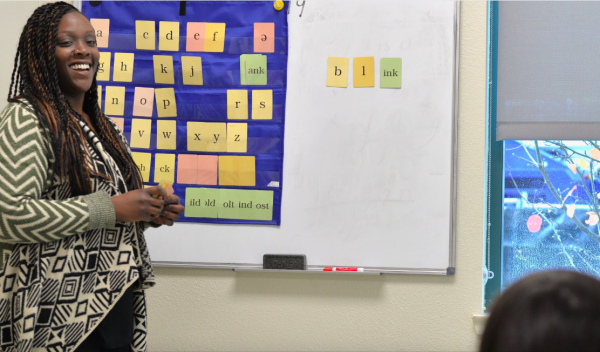Written by Sharon Lo, Doctoral Psychology Intern at CHC and Lucile Packard Children’s Hospital at Stanford
More time, less pressure and lower stakes make summer the perfect time to refine critical skills.
As summer approaches, kids and teens grow antsy, counting the days until school lets out. Visions of sleeping late and hanging out with friends fill their heads, without distractions like homework, extracurricular activities or, well, school! Meanwhile, parents worry that skills like time management, organization and accountability will be left by the wayside, along with crumpled homework assignments and used-up school supplies.
“Executive functioning” has become a buzz term: it’s rare to find a parenting article, workshop or conversation in the school parking lot where it’s not mentioned. Parents have been endlessly advised that these skills critical for success, with decades of research indicating that early self-regulation predicts life outcomes nearly 40 years later (even after considering variables like IQ and socioeconomic status).
So what does all this mean, anyway? Executive functions are processes that help us monitor and manage our thoughts, feelings, and behaviors. Some experts refer to these functions as the “CEO of our brain” because they oversee things like planning, organization, focus, attention, flexibility and impulse-control. Research has also shown that these are the last functions to fully mature, continuing to develop until about 25-30 years of age.
Thus, parents play an important role in training and mentoring their child’s CEO. Developmentally, your child’s CEO may still be crawling or learning to walk, even as a teenager. Fortunately there are evidence-based strategies to help ensure that he or she is not tumbling down the stairs, and summer is a great time to practice. Here are some ideas:
1. Structure
Think of what things help you plan your day and manage responsibilities at home and at the office: lists, spreadsheets, post-it notes, Google docs, calendars, planners…your child’s CEO, like yours, thrives off of this sort of structure.
- Schedules: Create a plan of action for the day and post it in a visible or readily available location so your child’s CEO can prepare for daily routines and anticipate upcoming transitions.
- Visual cues: Activating as many senses as possible can help your child’s CEO commit things to memory and better absorb information (i.e., add pictures next to activities on a schedule). Visual timers, apps and sites are another good tool.
- Verbal prompts: Your child’s CEO will benefit from brief and specific Limit reminders to one-step directions (i.e., “after breakfast, please put your bowl in the sink”) rather than a string of instructions.
2. Incentives
Your child’s CEO should be compensated for their hard work, though not financially. Positive attention, praise, and rewards are not only developmentally appropriate, but are also more effective long-term strategies than negative consequences like time-outs and punishments.
- Positive praise: Again, be specific! (i.e., “Thank you for keeping your eyes on me when I speak to you.”) If the praise is vague (e., “Thank you for being good”), the child may not understand what was “good” about their behavior and it may not be reinforced.
- Behavior charts: Goals must be achievable and specific, and goals that avoid the word “no” are more effective. For example, instead of “no fighting,” provide the alternate behavior you want to encourage: “gentle hands” or “calm voice.”
- Rewards: Suitable rewards may vary by age and interest, ranging from material objects (Minecraft figurines, arts and crafts, video games) to privileges (screen time, going first on game night) to experiences (going to the movies or a favorite restaurant). Be sure to get buy-in from your child in advance and agree on an incentive that reflects their effort. Rather than giving a reward every time your child complies with a demand or request, develop a point system or token-economy where the number of points or tokens earned for positive behaviors and required to purchase a reward may vary.
3. Flexibility
CEOs must expect (and plan for) the unexpected. One of the most important lessons to teach your child is that no matter how many lists, schedules, and color-coded calendars you’re managing, unanticipated changes are inevitable. An effective strategy for building flexibility is to make a game out of it. “How many different plans can we develop? Plan A, Plan B, Plan C…Plan X?” Pitch “flexibility” as a superpower and brainstorm ways that your child’s favorite character can use it. Identify an athlete or celebrity your child admires and list examples of how he/she adapts to unexpected circumstances.
4. Stress Management
Your child’s number one role model for self-regulation and managing executive functions is…drum roll please…YOU! So the more you can model your “flexibility superpowers,” the better. Research suggests that parents’ stress levels are strong predictors of their children’s social-emotional and behavioral functioning. So practice self-care. Try to take short breaks throughout the day. Spend a few minutes outside without electronics or a guided mindfulness exercise before bed.
5. Recharge
Just like the executives at the helm of the world’s most successful companies, your child’s CEO needs time to rest and recharge. Summer is the perfect time to take a step back from the daily grind and slow down harried lifestyles. Encourage your child to get outside, breathe fresh air, get more sleep and exercise. Scheduling in planned recharging breaks (2-5 minutes) is like allowing your child’s CEO to take some extra sips of coffee. With less assignments, deadlines and commitments, allow your child’s CEO the permission to sit back and enjoy the ride.









